VET APPROVED

The information is current and up-to-date in accordance with the latest veterinarian research.
Learn more »Click to Skip Ahead
Even the calmest of cats may experience stress and anxiety while traveling to the veterinary clinic and during an exam. This can make it difficult for the veterinarian to perform a thorough exam. It also means that some owners avoid taking their cats to the vet altogether, as they find the experience overly stressful—for both themselves and their cat. As a result, many cats miss out on preventative care and early disease detection.
This doesn’t have to be the case. Sedation or anxiety-reducing medications, such as Trazodone, can help make a potentially stressful situation much more comfortable for your cat.

What is Trazodone?
Trazodone (brand names Desyrel®, Molipaxin®) is a serotonin antagonist and reuptake inhibitor (SARI) antidepressant. It works by increasing serotonin levels in the brain.
Serotonin, also known as the “happy hormone”, is a neurotransmitter that sends signals between nerve cells and helps to regulate mood.
Trazodone has anti-anxiety and mild sedative properties. In cats, Trazodone is used for the management of short-term anxiety, such as anxiety related to travel or veterinary visits.1 Trazodone may also be used to manage noise phobias (e.g., towards fireworks and thunderstorms).
If your cat suffers from anxiety and you are looking for ways to help calm them, we suggest speaking to a vet.
What is the Correct Dose of Trazodone for Cats?
The correct dose of Trazodone is 50 to 100 mg per cat once daily, administered one to two hours before the anticipated stressful event. Trazodone is recommended for short-term use only in cats.
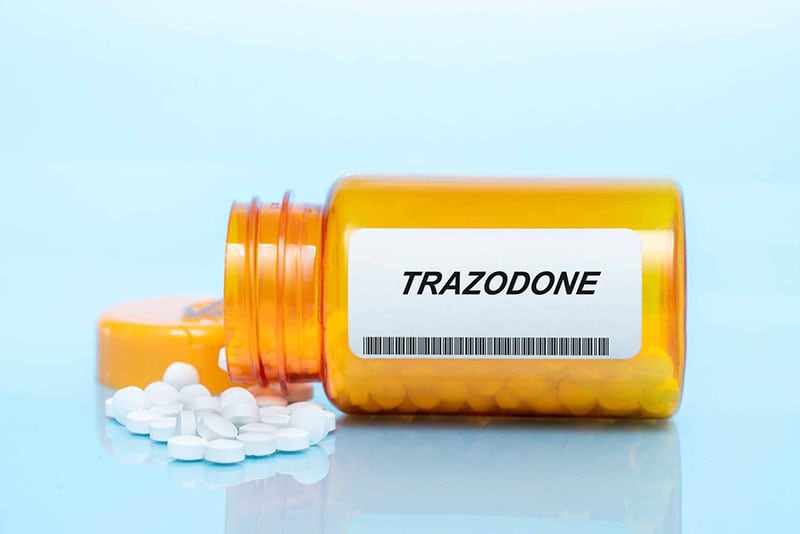
How is Trazodone Administered?
Trazodone is available in tablet or capsule form and is given orally (by mouth). This medication may be given to your cat on an empty stomach or with food. If your cat vomits after receiving Trazodone on an empty stomach, try giving the next dose with a small meal or treat.
Always follow your veterinarian’s instructions when giving Trazodone to your cat.
What Happens if You Miss a Dose of Trazodone?
For Trazodone to be effective at reducing stress and anxiety, your cat should receive a dose one to two hours before the anticipated stressful event. If you miss a dose, it may be necessary to reschedule or postpone your travel plans or veterinary appointment so that your cat may receive a dose of Trazodone at the correct time.
If your cat was prescribed Trazodone for the management of noise phobias (e.g., towards fireworks or thunderstorms) and you miss a dose, give the medication as soon as you remember. Be sure to move your cat to a quiet spot in the house while the medication takes effect.
If you miss a dose of Trazodone and are unsure of what to do, it’s best to contact your veterinarian for advice.
Potential Side Effects of Trazodone
Trazodone is generally well tolerated by healthy cats, and side effects are mild if present.2
Potential side effects include:
- Sedation
- Partial prolapse of the nictitating membrane (third eyelid)
- Ataxia (loss of coordination)
- Gastrointestinal effects (e.g., vomiting, diarrhea)
- Increase or decrease in appetite
- Agitation
- Fast heart rate
Trazodone may cause a serious and potentially life-threatening condition called serotonin syndrome if combined with other medications that increase serotonin levels in the body, such as antidepressants, Monoamine oxidase inhibitors (MAOIs), and attention-deficit/hyperactivity disorder (ADHD) medication.3
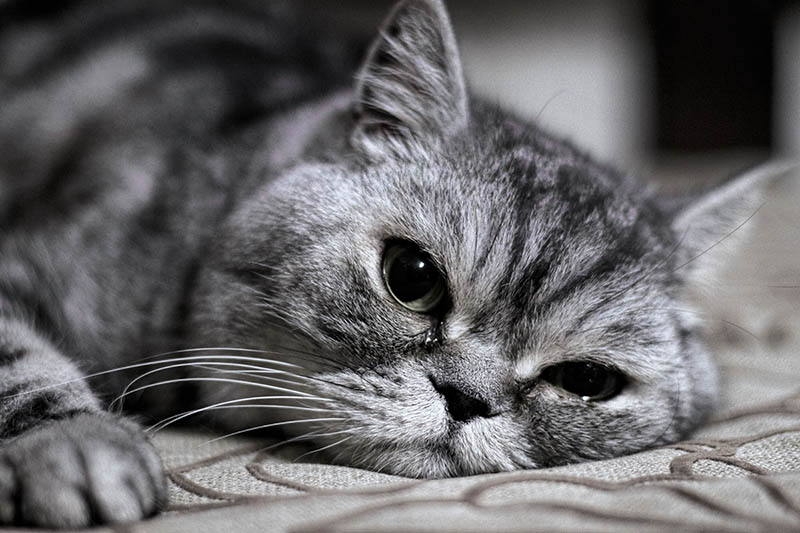
Signs of serotonin syndrome include:
- Vomiting
- Diarrhea
- Loss of appetite
- Dilated pupils
- Increased heart rate
- Fever
- Muscle tremors or jerking
- Restlessness
- Difficulty walking
- Agitation
- Excitation
- Disorientation
- Vocalization
- Seizures
For this reason, your veterinarian must be aware of all medications that your cat is receiving (including vitamins, supplements, or herbal therapies). If your cat visits more than one veterinarian, ensure that all of your veterinarians have a complete list of the medications that your cat takes to prevent drug interactions like serotonin syndrome from occurring.
If your cat displays any of the above-mentioned signs of serotonin syndrome, you should seek immediate veterinary attention.
Trazodone Warnings and Precautions
Trazodone should be used with caution in pets with:
- Kidney or liver problems
- Severe heart disease
- Glaucoma
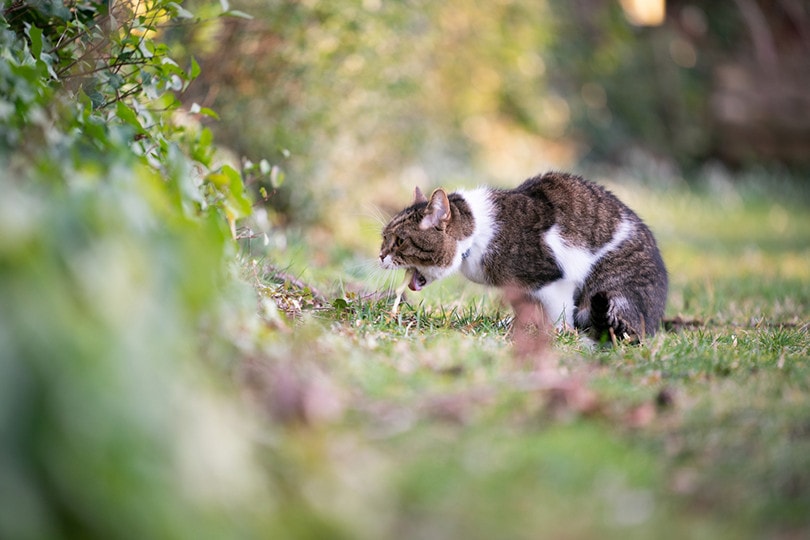

Frequently Asked Questions (FAQs)
How quickly does trazodone take effect in cats?
Trazodone typically takes effect in one to two hours, with peak sedation occurring at two to two and a half hours after administration.
How should I store this medication?
Trazodone should be sorted in the original prescription bottle or a closed dosage reminder container at room temperature, away from heat, moisture, and direct light. Keep this medication out of reach of children and other animals.
How do I know if my cat is stressed?
If your cat is stressed or anxious, you may notice some or all of the following signs:
- Avoiding eye contact
- Open-mouth breathing
- Dilated pupils
- Tail flicking
- Urination
- Defecation
- Tail held close to the body
- Ears flattened against the head
- Crouching down
- Freezing
- Trying to escape
- Vocalization
- Hair standing up
- Aggression


Conclusion
Trazodone is a serotonin antagonist and reuptake inhibitor (SARI) antidepressant. It has anti-anxiety and mild sedative properties. In cats, Trazodone is used for the management of short-term anxiety, such as anxiety related to travel, veterinary visits, or noise phobias (e.g., towards fireworks, thunderstorms).
Trazodone is considered to be safe and is generally well-tolerated by healthy cats. Side effects are mild if present. The most commonly reported side effect related to Trazodone administration was sleepiness.
Trazodone may cause a serious and potentially life-threatening condition called serotonin syndrome if combined with other medications that increase serotonin levels in the body. For this reason, your veterinarian must be aware of all medications that your cat is receiving—including vitamins, supplements, or herbal therapies.
Featured Image Credit: Hunt Han, Unsplash
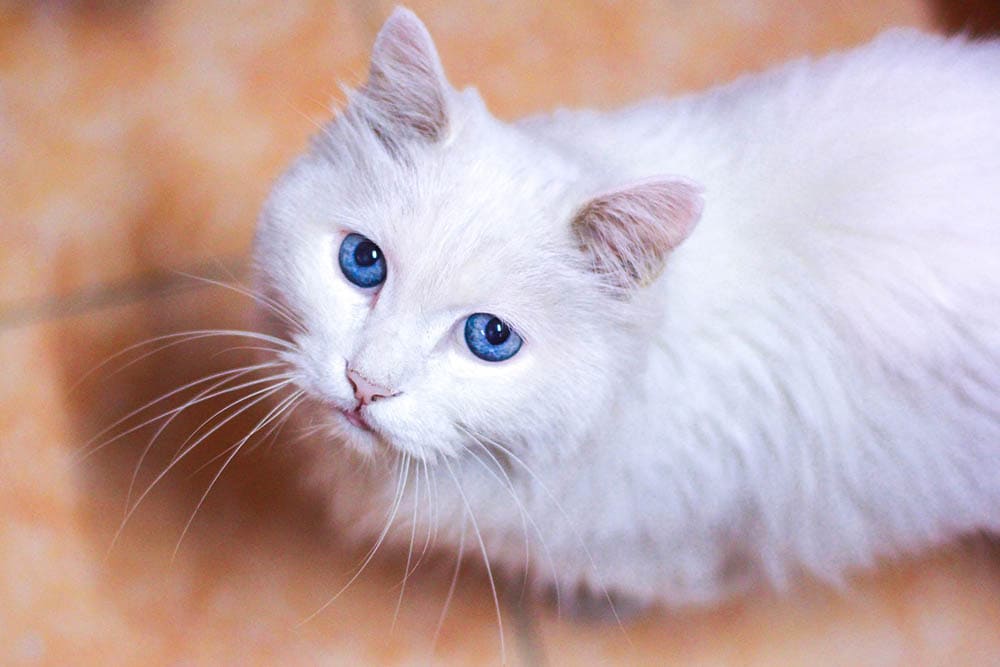






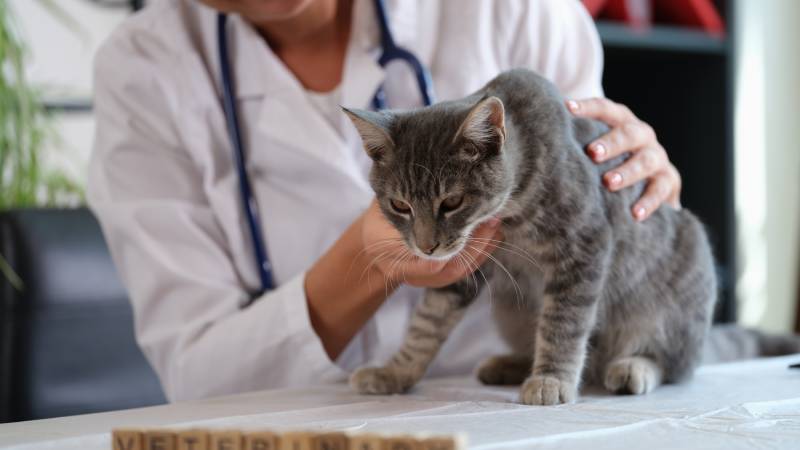
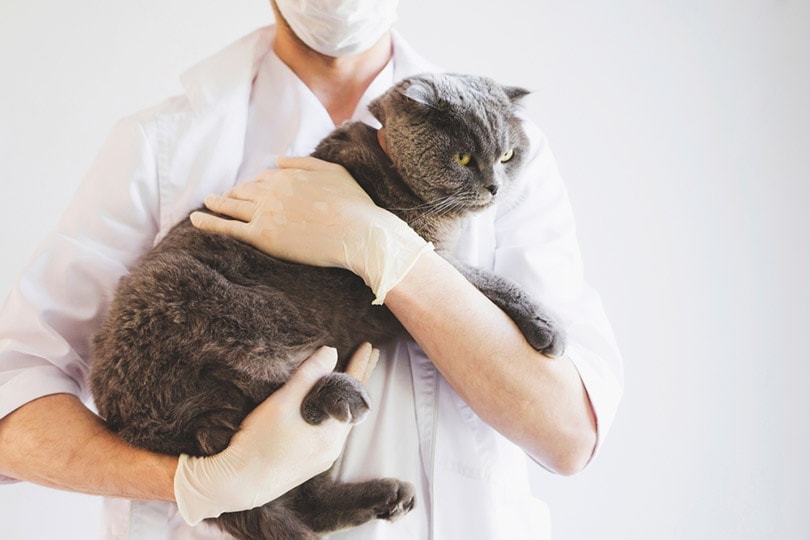



4 Responses
We adopted an abandoned male cat, est to be 3 months old at the time. We had him neutered and vaxed and vetted, but needed to keep him mostly as an outdoor cat bec he’s a dominant male, even 6 months after he was neutered. Likes friendly dogs, hates all other cats – and we have 2 indoor, docile cats – so I couldn’t trust him with them.
Here’s the problem, we’d adopted a semi-feral, female cat several years before this other one showed up. MaMa Kitty had 3 kittens under our back window, and we’ve beeng caring for her since. She is only friendly w me and my husband – and that took years. She’s never strike at us, but would run away. Finally she grew to trust us and was our strictly outdoor cat (she refuses to come inside) for 5 years before this latest stray showed up (the dominant male). So, of course, the male goes after ALL other cats, including her. I’ve been bringing the aggressve male inside at night, keeping him in my bedroom with me and the dog, so he can’t interact with our 2 indoor cats. But should MaMa Kitty come around for dinner before I can get him inside, he is relentless chasing her. So I’be begun giving this male a very small amt of Trazodone (our little rescue dog gets 1/4 tablet 2x a day – and she’s 9 lbs), and I’d like to continue giving him the Trazodone this same, tiny dose every day since he seems to be far less aggressive, so at MaMa Kitty (outdoor only semi-feral) won’t be constantly pursued by this crazy cat.
QUESTION: Aggressive dominate male cat is approximately 12 pounds, can I continue to give him a small amt of Trazodone every day, safely? He’s not on any other supplements or RXs and is approximately 2 years old (time flies, doesn’t it?). Thank you!
Dear Joan,
thank you for sharing your story and for your question. We are sorry to hear about your issues with your new cat. Sometimes it takes a bit of a time, before cats get used to each other so don’t lose your hope!
With that being said, it is important to note, that Trazodone is not meant for long-term usage in cats, so it is not advisable to keep on giving the male cat dosage of Trazodone every day. Maybe it would be worth to focus on the reason why the male cat is chasing the older one around. We suggest you check some of our articles on this topic, for example this one:
–How to Introduce Cats to Each Other: Do’s & Don’ts
Maybe you will find some tips on how to re-introduce the cats.
Alternatively, you can set-up an appointment with one of our vets at http://www.PangoVet.com. They will be happy to try to find solution to your issues and your cat’s behavior.
One of my kittens accidentally got a hold of one of my trazadone pills am I supposed to worry about any side effects and are they gonna be OK? It’s 50 mg.
Hello Rachel,
Thank you for your question. Trazodone is a prescription medication primarily used in humans to treat depression, anxiety, and insomnia. In veterinary medicine, trazodone is occasionally prescribed off-label for cats. The dose for cats must be determined by a veterinarian based on the cat’s weight, health status, and specific needs.
However, accidental ingestion of trazodone or improper dosing in cats, especially kittens, can lead to severe adverse effects, such as vomiting, lethargy, hyperactivity, tremors, seizures, increased heart rate, or other behavioral changes. If your kitten has ingested trazodone, contact a veterinarian immediately with details such as the amount ingested, your kitten’s weight, and any signs you observe. Even if no signs are apparent, immediate veterinary guidance is crucial, as the effects of human medications can take time to manifest and may pose a significant risk to your kitten.
If you would like to consult with a vet online to address the urgency, we would like to suggest you book an appointment with one of our vets at PangoVet.com